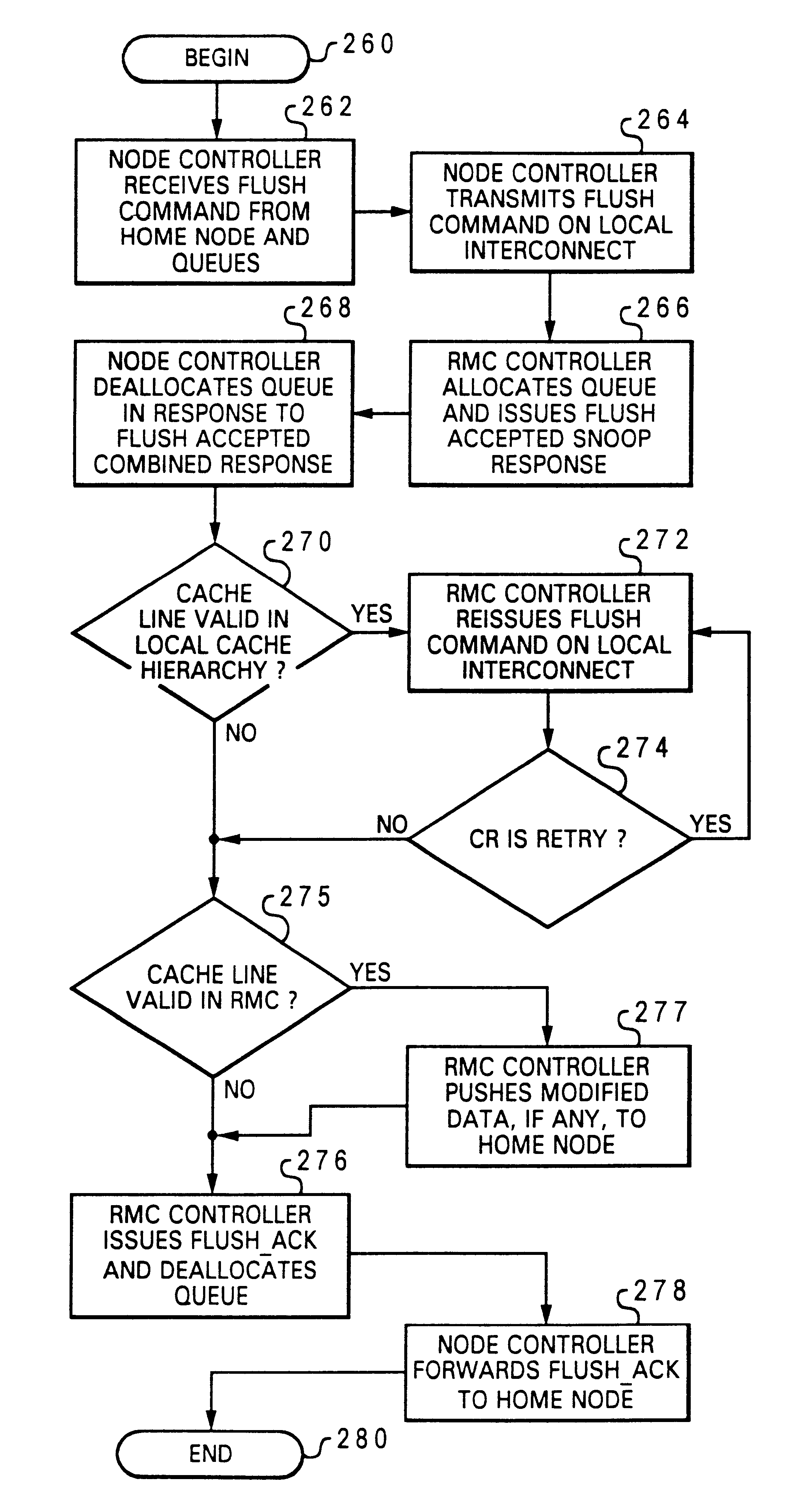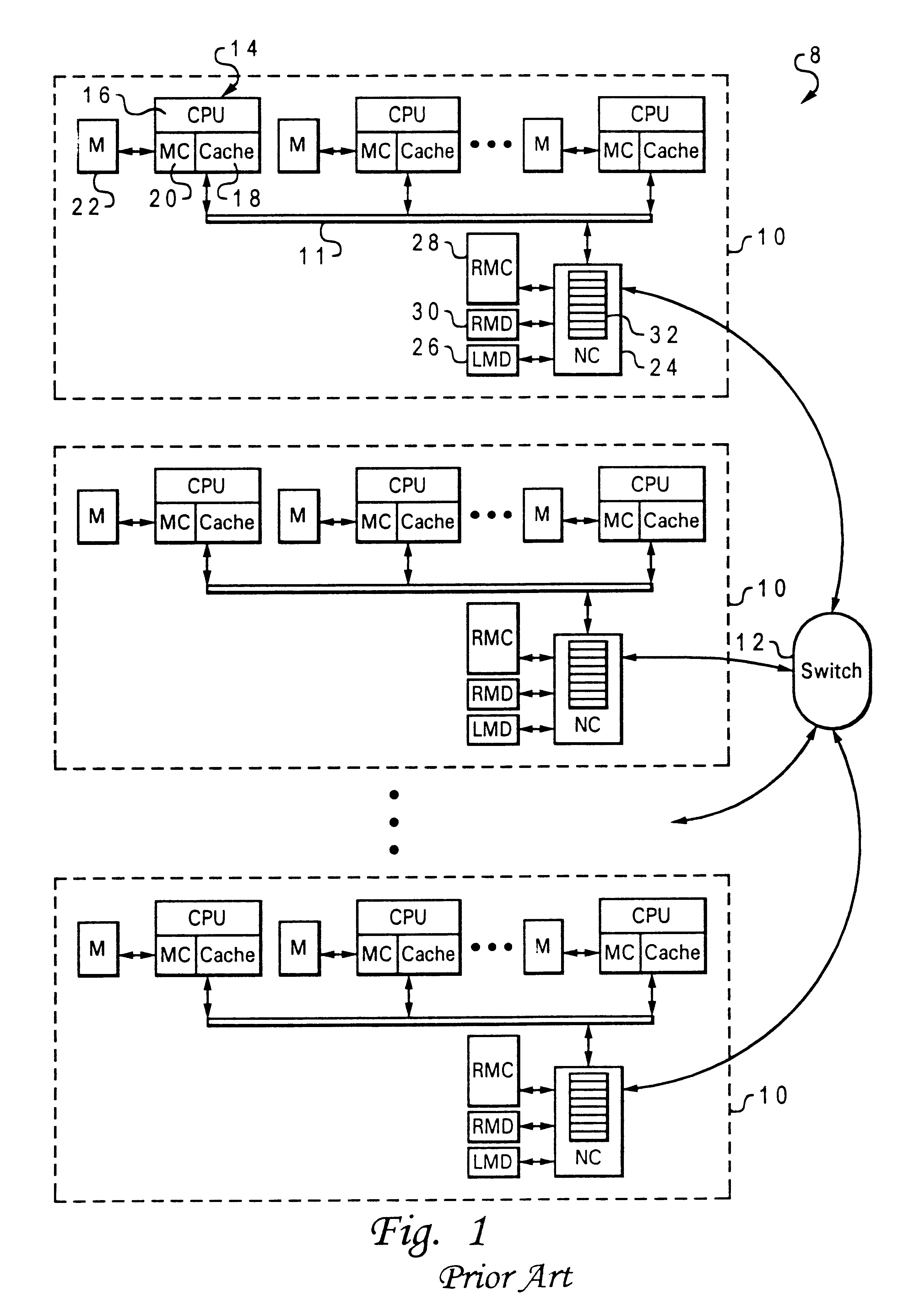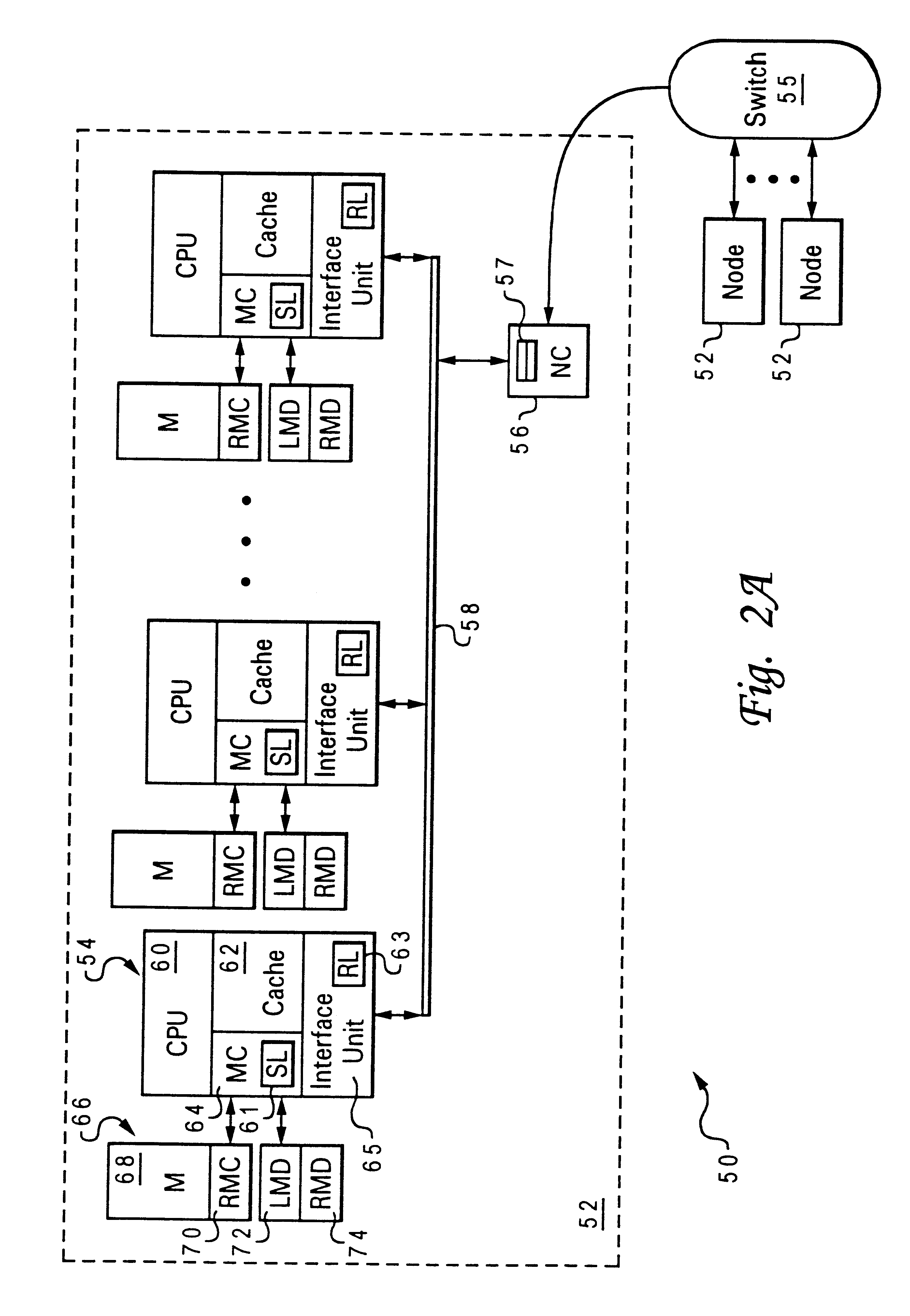Decentralized global coherency management in a multi-node computer system
a computer system and multi-node technology, applied in the field of data processing systems, can solve the problems of limited scalability of smp computer systems, inability to expand smp computer systems, and inability to meet the needs of users
- Summary
- Abstract
- Description
- Claims
- Application Information
AI Technical Summary
Benefits of technology
Problems solved by technology
Method used
Image
Examples
Embodiment Construction
System Overview
With reference again to the figures and in particular with reference to FIG. 2A, there is depicted an exemplary embodiment of a NUMA computer system 50 in accordance with the present invention. The depicted embodiment can be realized, for example, as a workstation, server, or mainframe computer. Although the present invention is principally described below with reference to NUMA computer system 50, those skilled in the art will appreciate that many of the features of the present invention are also applicable to other computer system architectures, including SMP architectures.
As illustrated, NUMA computer system 50 includes two or more nodes 52 coupled by a node interconnect 55, which, as shown, may be implemented as a switch. Although not required by the present invention, in the illustrated embodiment each of nodes 52 is substantially identical, with each node including one or more processing units 54 coupled to a local interconnect 58 and a node controller 56 couple...
PUM
 Login to View More
Login to View More Abstract
Description
Claims
Application Information
 Login to View More
Login to View More - R&D
- Intellectual Property
- Life Sciences
- Materials
- Tech Scout
- Unparalleled Data Quality
- Higher Quality Content
- 60% Fewer Hallucinations
Browse by: Latest US Patents, China's latest patents, Technical Efficacy Thesaurus, Application Domain, Technology Topic, Popular Technical Reports.
© 2025 PatSnap. All rights reserved.Legal|Privacy policy|Modern Slavery Act Transparency Statement|Sitemap|About US| Contact US: help@patsnap.com



